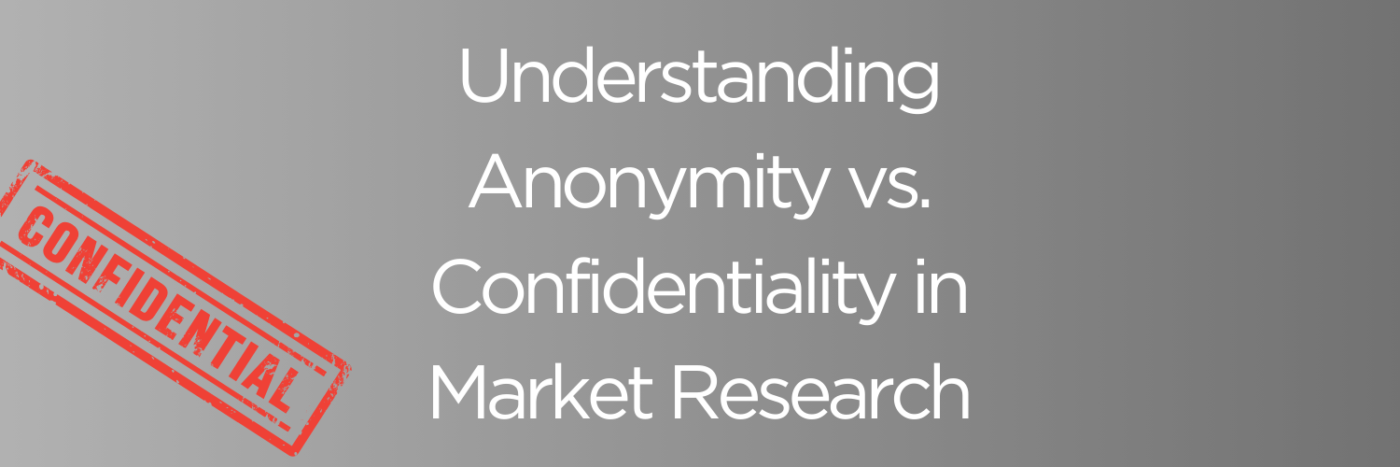
Safeguarding respondent information is incredibly important when conducting market research. Understanding the difference between confidentiality vs anonymity is crucial to maintaining trust and integrity in the research process.
Defining Anonymity Vs Confidentiality in Research
In market research, how we handle personally identifying information, such as names, emails, and phone numbers, is crucial. Anonymity and confidentiality serve as the two pillars that ensure the responsible management of such sensitive data.
What is Anonymity?
Anonymity in market research means that responses are entirely separated from any personally identifiable information. The respondents cannot be identified, and not even the person responsible for data collection can link the information back to a specific individual. This ensures the purest form of privacy, allowing respondents to express their honest opinions without fear of repercussions.
What is Confidentiality?
Contrastingly, confidential surveys in market research do link responses to personal information. Although the organization pledges to keep this information private, certain administrators can access the data and identify respondents. This method is beneficial when detailed actions are planned based on respondents’ feedback, allowing for more targeted and specific improvements.
The Difference between a Confidential vs Anonymous Survey
Anonymous surveys ensure respondent’s identities are completely hidden, promoting open and honest feedback, while confidential surveys maintain a secure link to personal information, allowing for in-depth analysis and targeted improvements. To put it simply, anonymous surveys hide who you are; confidential surveys know who you are but keep it a secret.
The Importance of Transparency
For any survey to be successful, respondents need to feel secure enough to provide honest and open feedback. Validity of research can be compromised by fears of responses being traced back to respondents leading to biased or untruthful answers. It’s essential to inform survey participants beforehand about the type of data collection that will take place, whether anonymous or confidential, to foster trust and ensure the collection of reliable data.
Why Choose One Over the Other?
Determining whether to use an anonymous vs confidential survey depends on the unique needs and objectives of the study. Anonymous surveys are ideal when the emphasis is on creating a secure environment that fosters honest and unfiltered feedback. Conversely, confidential surveys are preferable when the aim is to implement precise improvements by associating responses with demographic data.
In-depth confidential surveys enable organizations to pinpoint areas requiring attention and improvement, allowing for more refined and effective interventions. They provide a richer, more detailed perspective, enabling researchers to understand the nuances of employee sentiments and experiences, ultimately leading to more informed and impactful decisions.
Anonymous surveys play a pivotal role in obtaining raw, unadulterated feedback, especially on sensitive topics, as they eliminate the fear of reprisal. This approach minimizes the ‘social desirability bias,’ where respondents may otherwise tailor their answers to appear in a positive light, ensuring the collection of more genuine and unbiased responses.
Anonymity vs. confidentiality in research is an important question to answer as both are integral components in market research, each serving specific needs depending on the goals of the study. Anonymity provides a secure environment for honest feedback, while confidentiality allows for more precise and targeted improvements by linking responses to demographic information. Regardless of the approach, maintaining transparency about data collection methods is crucial to ensure the reliability and success of your market research.
